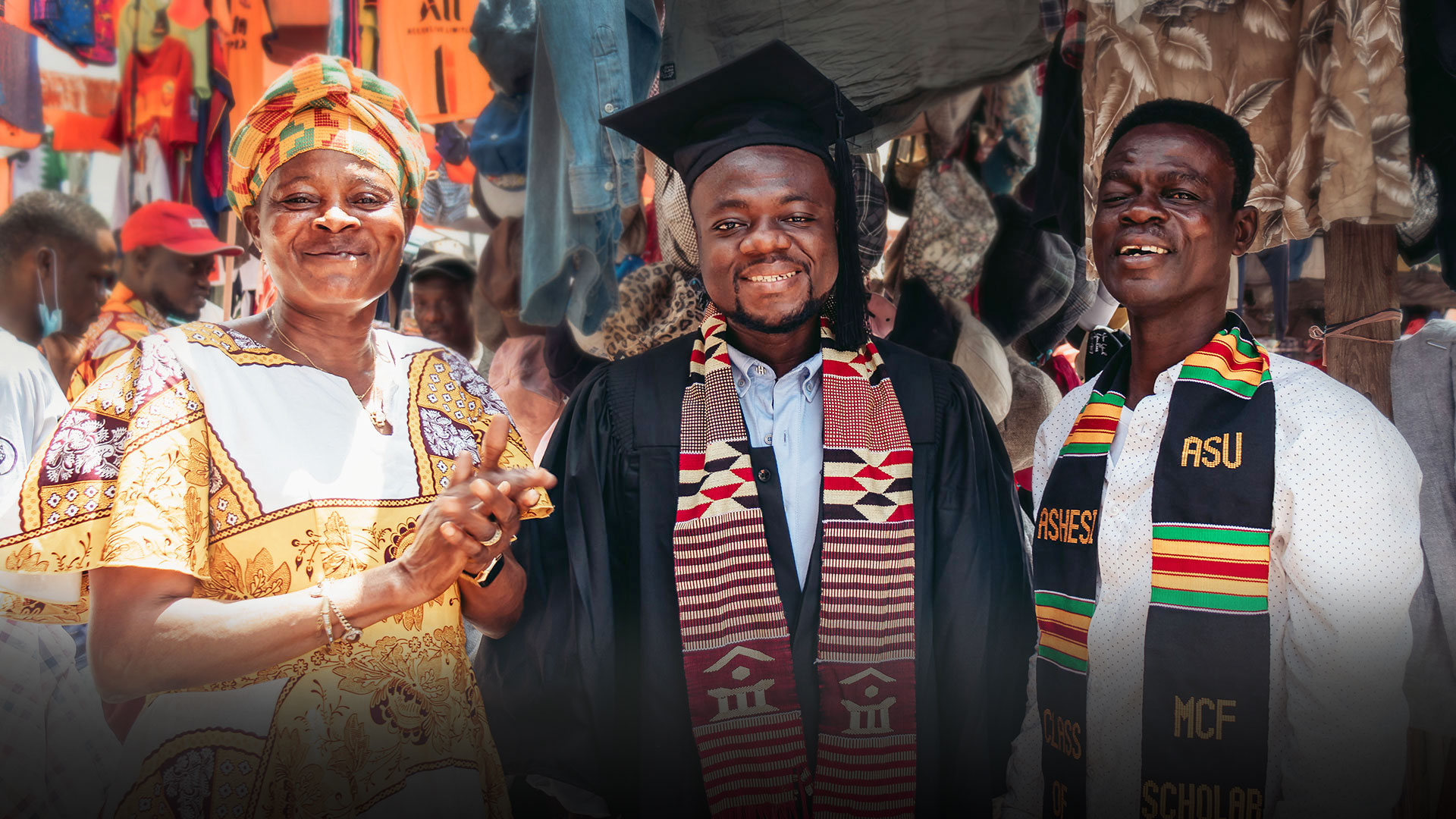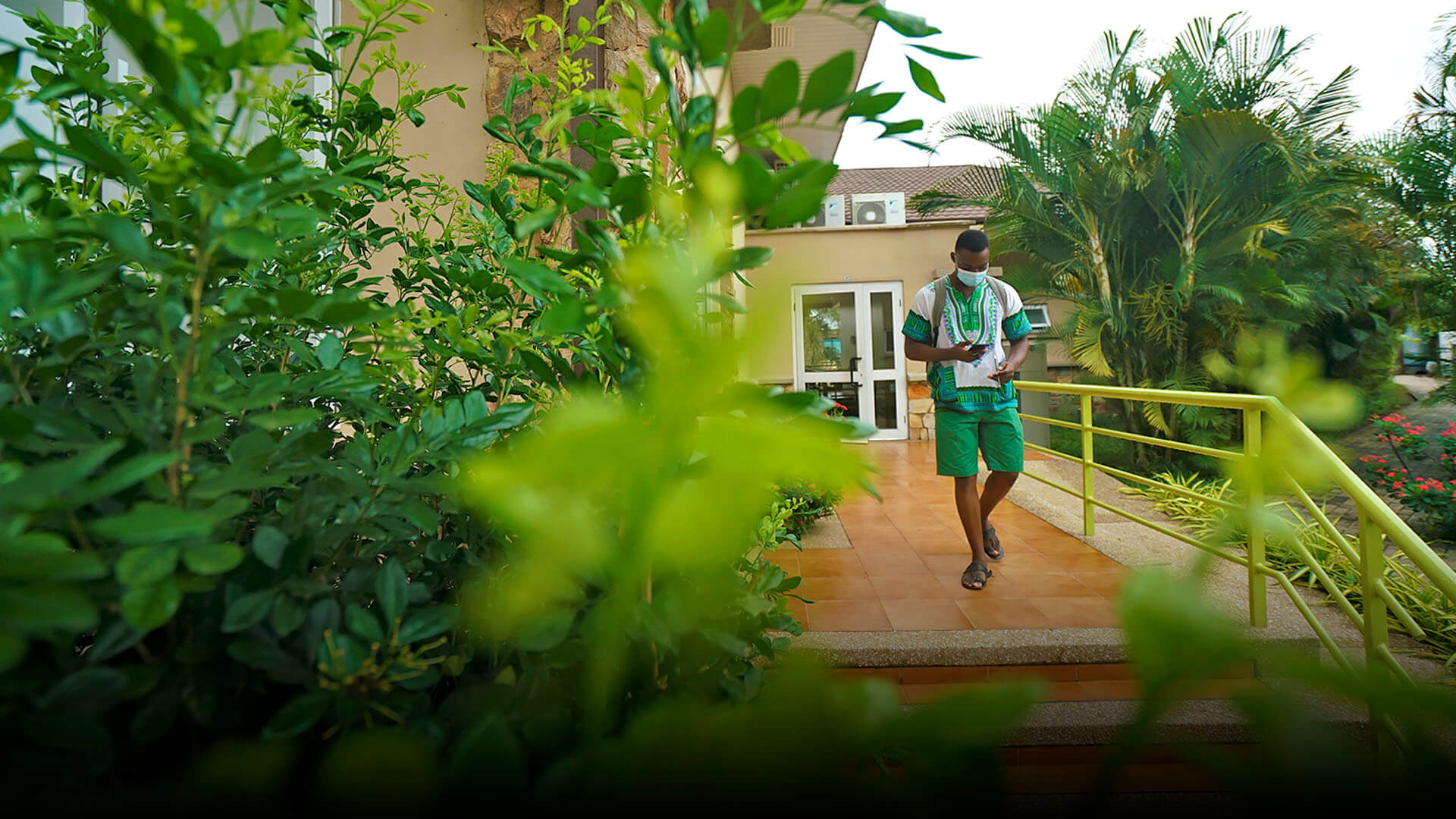97% of Ashesi’s Class of 2019 received job, and graduate school placement offers within six months of completing national service, as per responses from our graduate placement survey. 90% of the class had accepted offers and started their careers within the reporting period, while the remaining 10% were pursuing other opportunities. National service is a one-year volunteer work requirement for graduates in Ghana. Our graduate survey focuses on six months after the national service period to indicate true career placement. The class’ placement outcomes are similar to that of the Class of 2018, which also had 90% placement within six months of completing national service.
82% of the Class of 2019 are pursuing their careers and graduate school programmes in Africa, with the other 18% working or pursuing graduate school degrees outside the continent (primarily in Europe). The Banking & Finance industry recruited the highest number of graduates in this class at 23.2%, with the Information Technology Industry coming in second with 21.2%. The most significant increase in industry recruitment was with the Transport and Logistics industry, which recruited 11.1% of graduates this year relative to the previous class’ 4%. 
Bank of America, Bewsys Limited, Goldman Sachs, TurnTabl, CFAO Motors, Asaak Financial Services, Rwanda Girls Initiative, MTN and Vodafone were among the top recruiters for this class. Other employers include Microsoft, KPMG, Kasapreko, and Cellulant Kenya. Graduate schools that students in the Class of 2019 are currently studying at also include the University of Edinburgh, Carnegie Mellon University, and the Schulich School of Business.
The average starting monthly salary for the Class of 2019 was between GHs2000 - GHs3000 which tracks closely with the Class of 2018’s. The 90th percentile of the class received starting salaries of GHs6000 - GHs7000 or more, and the 75th percentile received starting salaries of GHs4000 - GHs5000 or more.
“We continue to invest in helping our students and graduates succeed in their careers,” says Abigail Welbeck, Director of Career Services at Ashesi. “Each year, we receive feedback from alumni on their career progress, and we consider this extremely important to the work we do. As with all our annual reports, the Class of 2019’s placement report helps us evaluate what is working and what is not. We are also hoping that it provides key insights for employment partners who work with us to prepare students and help recruit our graduates.”
A partnership with the IFC to evaluate how well Ashesi prepares students for the world of work
In 2019, Ashesi partnered with the IFC’s Vitae Programme to assess how well we prepared students for the world of work. Vitae is a first-in-kind program from the IFC to help steer higher education institutions onto a course where they adopt strategies to better align themselves with market dynamics. The ambition is to foster the development of a higher level of employability standards in emerging markets and to improve student outcomes. IFC has deployed employability assessments for higher education clients in Asia, Africa, the Middle East, Latin America, and the Caribbean. Through Vitae, employability advisory support is also offered to higher education institutions outside of IFC’s client network – both public and private – to make a more significant positive impact.
The evaluation of Ashesi focused on the university’s strategy for graduate employability, the quality and relevance of learning, employer engagement, career and placement services, student retention, and alumni engagement. Overall, Ashesi received a 90% rating, one of the highest among peer universities globally. The evaluation reaffirmed many of Ashesi’s tools and resources for preparing students for solid careers. It also provided recommendations around auxiliary areas (such as having more interactions between alumni and students) to strengthen.
Search
X
Search




